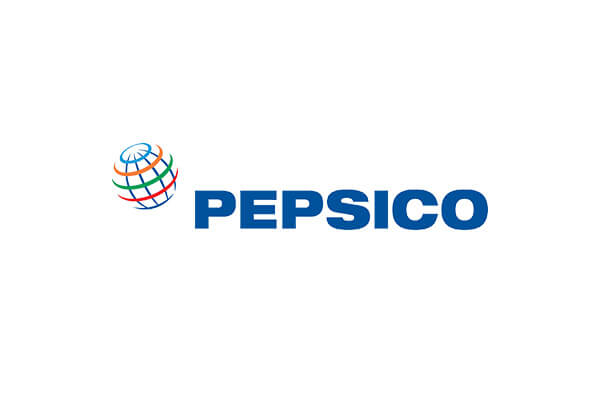PepsiCo Beverages North America
Leveraging employee engagement to understand turnover reasons and improve retention.
STAFFING NEEDS
291,000 global teammates employed; 60,000 in PepsiCo Beverages North America (PBNA)
Serving more than 200 countries
Focused on understanding the cause of varying turnover rates across their PepsiCo Beverages North America (PBNA) frontline workforce to improve 90 day retention.
THE WORKSTEP IMPACT
PBNA employees who engaged with WorkStep check-ins retained 9% higher than those who didn’t overall
30-day and 90-day retention improved 6-14% for PBNA team members who engaged with WorkStep check-ins
WorkStep insights helped a facility develop a new training program, which lowered turnover by 7%. Because of this success it will be implemented across the PBNA Central Division
PepsiCo Beverages North America (PBNA) is the refreshment beverage unit of PepsiCo, Inc., in the United States and Canada. It oversees the manufacturing, distribution, and marketing of its products, which are enjoyed by more than a billion people around the world every day. These include popular beverage brands, such as Mountain Dew, Gatorade, and Lipton.
PBNA is committed to continuing to evolve as an employer so they can remain a strong and competitive organization by attracting and retaining top talent.
In efforts to improve the employee experience and reduce turnover across their hourly workforce in their beverage unit, PBNA has partnered with WorkStep to gather the sentiments of their associates to understand what the top factors influencing turnover are, and create an action plan around that feedback.
Challenge
Over the past few years companies have seen labor shortages hit all-time highs, without any relief in sight. These shortages significantly impact the ability for organizations, like PBNA to meet the demands of their customers without over burdening their existing workforce. Understanding what is causing frontline workers to leave these positions has been difficult for companies to gauge, making it challenging to prevent.
PBNA was faced with wildly varying turnover rates in their hourly worker population across divisions. While managers seemed to have opinions to explain the differences and reasons behind this attrition, no one had the data to support it.
PBNA realized they needed a tool that would give them the ability to gain real-time insights from these employees to collect valuable data on what motivates workers to leave. It was also important to have a solution that would create alignment between divisions, allowing them to establish action plans within specific departments and/or role types.
Solution
Using WorkStep, PBNA was quickly able to understand that divisions struggling with turnover were having particular problems with role expectation alignment. This was the main reason leading to high new hire quit rates across the company.
In specific PBNA locations, like their Phoenix facility, they found additional turnover drivers needed to be addressed. For this facility, WorkStep’s Customer Success team facilitated crossfunctional tactical working sessions between HR and Ops. Stakeholders were able to identify that the lack of streamlined onboarding for work groups was adversely impacting a positive new hire experience, significantly influencing turnover.
At their San Antonio facility, by using WorkStep favorability insights, the HR Business Partner uncovered that frontline worker sentiment around Peer Coaching was low. This prompted the development of a pilot Peer Training Program aimed to enhance favorability in this employee engagement theme.
The WorkStep solution helped PBNA engage with their hourly workers to gather feedback sending recurring check-ins to their workforce. This enabled them to identify top reasons behind turnover and develop strategies to improve retention, especially within the first 90 days of employment.
Results
WorkStep enabled PBNA to facilitate engagement between their associates and management teams. These insights guided them to create action plans to reduce turnover.
Across divisions, PBNA invested in optional ‘realistic job previews’. These optional previews can be used before and during onboarding to ensure new hires come in with a full and fair understanding of their role. As a result of this initiative and others, PBNA was able to reduce new hire turnover by up to 29% within the first year of rolling out WorkStep.
In their Phoenix facility, sales and warehouse managers developed a structured onboarding plan and schedule that incorporated team building and social connections. Implementing this change and others supported PBNA’s ability to decrease turnover by 16% QoQ at this location. Given the average cost of a turnover event in 2022 is $19,600 for the industry, reducing turnover provided a financial benefit. In tandem with other initiatives, PBNA’s San Antonio leadership saw the impact of the Peer Training Pilot through a 7% QoQ turnover reduction. Due to this success, the program is expanding across all of the Central Division in 2023.
Overall, WorkStep has helped PBNA realize a significant difference in retention rates for employees who have engaged in check-ins versus those who have not. They found from 2021 to 2022, 30-day and 90-day retention improved 6-14% for team members who engaged with WorkStep check-ins. In 2022, overall retention improved by 9% for those employees who responded to check-ins. Better retention rates have helped PBNA improve productivity, and ultimately, customer satisfaction.
